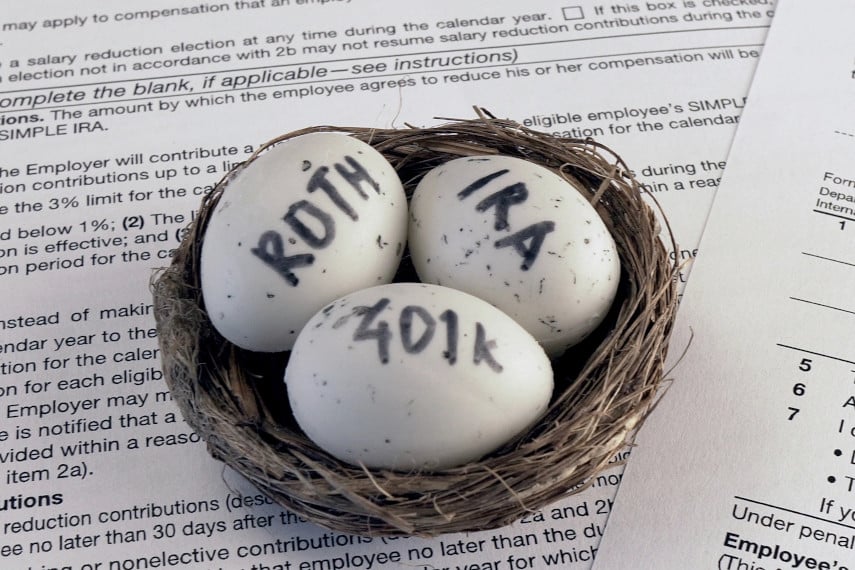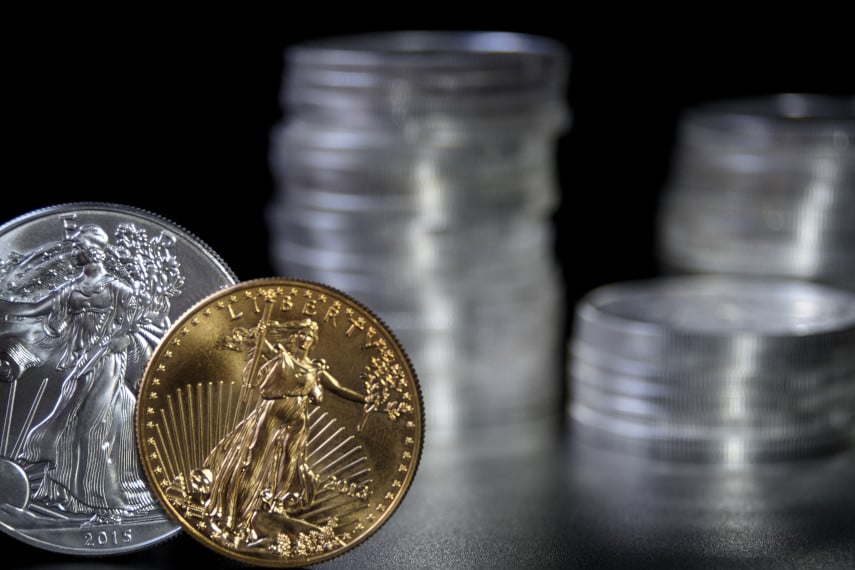
When it comes to investing in an IRA, most investors are probably familiar with the most common investment options, such as stocks, bonds, mutual funds, CDs, etc. It’s probably safe to say that most investors don’t realize that it’s possible to invest in precious metals such as gold with an IRA. And even those who invest in a gold IRA may not know that they can invest in gold with a Roth IRA.
Probably the overwhelming majority of gold IRA investors invest in gold with a Traditional IRA. A Traditional IRA invests in assets using pre-tax dollars, as do most 401(k) and similar retirement accounts. Using pre-tax dollars from payroll deductions reduces income tax liability. And when it comes to a 401(k) to IRA rollover, such as rolling assets from a 401(k) over into a gold IRA, it’s made easier by rolling over from a 401(k) to a Traditional IRA, as there are no tax consequences.
Still, a Roth gold IRA could hold benefits for certain investors. And with recent changes to the tax laws, a Roth IRA may become a more popular option for more investors.
What Is a Roth IRA?
A Roth IRA differs from a Traditional IRA in that investments are made using post-tax dollars, unlike the pre-tax dollars that fund a Traditional IRA. The distributions from a Roth IRA are therefore not taxed, unlike the distributions from a Traditional IRA.
Unlike Traditional IRAs, Roth IRAs are subject to income limits. If your income is too high, you won’t be allowed to contribute to a Roth IRA.
It’s also important to remember that annual IRA contribution limits apply to all your IRA accounts. So if you have both a Traditional IRA and a Roth IRA, the $6,000 annual contribution applies across both accounts. If you contribute $4,000 to your Traditional IRA, you are then only allowed to contribute $2,000 to your Roth IRA.
Why Do People Invest in a Roth IRA?
The most common reason for investing in a Roth IRA is to minimize your future tax liability. Because IRA distributions are taxed at ordinary income rates, a Roth IRA can save you taxes if you end up in a higher income tax bracket later in your life. So if you expect to be taxed at a higher rate in retirement, it might make sense to think about a Roth IRA.
A Roth IRA could also help with those who want to leave their IRA assets to their heirs. IRAs left to heirs used to be known as stretch IRAs, as they could be stretched out over the lifetime of the heir. But with new IRA rules introduced with passage of the SECURE Act in 2019, the stretch IRA was all but done away with.
Now non-spouses inheriting an IRA have 10 years to distribute all the assets of the IRA they inherit. For an inherited Traditional IRA, that could mean a big tax hit for the heir once distributions are taken. But for an inherited Roth IRA, no taxes would be owed on distributions. This has given rise to speculation that more people looking to pass on an IRA to an heir will open Roth IRAs or convert their existing retirement accounts into Roth IRAs in order to spare their heirs a tax hit.
As with any investment that could affect your tax liability, you’ll want to consult with a tax advisor to determine whether a Roth IRA might be a good fit for you.
Investing in Gold With a Roth IRA
Just like any other IRA, a Roth IRA can invest in precious metals such as gold. But don’t expect to be able to go to your nearest brokerage and open a Roth gold IRA. A Roth gold IRA will in most cases be a self-directed IRA, just like a Traditional gold IRA. And there are a number of different ways you could fund a Roth IRA.
You could open a standalone Roth IRA and fund it with existing post-tax dollars, for example from your bank account. You could perform a Roth conversion, distributing assets from existing pre-tax retirement accounts such as a 401(k), 403(b), TSP, or similar account into a Roth IRA. Or if you have a Roth 401(k), you could roll over assets from your Roth 401(k) into a Roth IRA.
If you decide to open a Roth gold IRA, your Roth gold IRA could invest in physical gold coins or bars just like a Traditional gold IRA. And when it comes time to take a distribution, you can take the distribution in the form of gold coins, receiving them tax-free.
Whether you decide to invest in a Roth gold IRA or a Traditional gold IRA, it’s imperative that you work with trusted and experienced partners who are attuned to your needs. And that’s where Goldco shines.
With years of experience helping thousands of satisfied customers just like you invest in precious metals, Goldco’s representatives know what it takes to navigate the process of setting up a gold IRA, rolling over assets, and purchasing precious metals. Our experts stop at nothing to ensure that the process of establishing your gold IRA goes smoothly. So if you think that a gold IRA may be the right choice for you, call Goldco’s precious metals experts today to learn more about your gold investment options.






